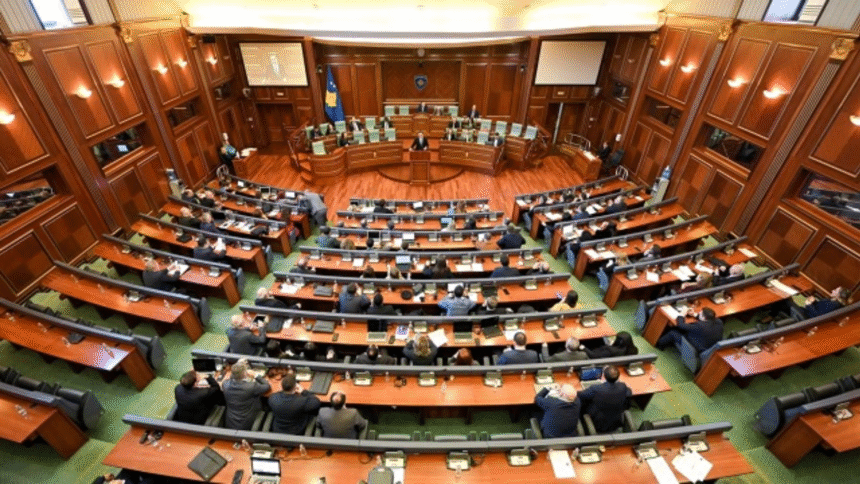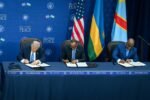Kosovo is on the brink of a political and legal crisis, as the country’s Parliament remains unconstituted more than a month after snap elections were held. The 30-day constitutional deadline issued by the Constitutional Court expires on July 26, and failure to meet it could plunge the country into an unprecedented deadlock.
Despite 44 failed attempts, the Kosovo Assembly has not managed to elect its Speaker, the crucial third step in the constitutive process. Legal experts and civil society warn that if this continues, Kosovo will enter a legal vacuum for which there is no precedent in the post-war era.
Constitution vs. Reality: A Legal Grey Zone
According to the Constitutional Court’s ruling on June 26, the newly elected Assembly must be constituted within 30 days. However, no clear legal consequence is outlined if that deadline is breached.
Former Constitutional Court judge Gjyljeta Mushkolaj said the burden now lies with President Vjosa Osmani, who has the duty to ensure the functioning of democratic institutions. If no agreement is reached among parties, she may need to request a new interpretation from the Constitutional Court on what steps to take next.
“The Constitutional Court must be more explicit about the consequences once the deadline is missed. Its role is far from over,” Mushkolaj told Radio Free Europe.
President Osmani, who hosted two days of meetings with party leaders last week, has emphasized that this deadline is a “constitutional obligation, not an option.” Her office has not ruled out seeking further clarification from the Court.
Mandates at Risk? Experts Say Unlikely
The idea of stripping MPs of their mandates for failing to form the Parliament has circulated—particularly among opposition parties. VV MP Mimoza Kusari-Lila recently raised the possibility that all 120 MPs could lose their mandates if they fail to meet the deadline.
However, constitutional experts like Mushkolaj and Naim Jakaj of the Kosovo Law Institute (IKD) dismiss this idea. They argue that the people, not the Court, grant mandates, and only new elections could revoke them. The Constitution does not list failure to elect a speaker as a reason to terminate a mandate.
“Kosovo would enter a legal and political situation never seen before. We will feel the consequences in the months ahead if Parliament is not formed by July 26,” warned Jakaj.
A Vicious Circle of Political Stalemate
Currently, the Assembly has only completed two steps: the validation of MP mandates and the oath-taking. The third step—electing a Speaker—has failed repeatedly, mainly due to political infighting.
Albulena Haxhiu, VV’s candidate, has not secured the necessary 61 votes, and opposition parties like the PDK and AAK see her as a divisive figure. The LDK has ruled out supporting any VV candidate. VV now proposes a secret ballot, promising to nominate someone else if Haxhiu fails again—but other parties oppose this method, deepening the impasse.
Sociologist Artan Muhaxhiri warns that replacing MPs from party lists, even if technically possible, would not resolve the crisis. The newcomers would lack legitimacy and experience and act under strict party control, recreating the same dynamics.
“We’d be back to square one—only with more wasted time and deeper damage to Kosovo’s institutions and international reputation,” Muhaxhiri said.
What’s Next?
Unless political parties compromise before July 26, Kosovo risks a constitutional crisis with no clear roadmap. Experts suggest that the Constitutional Court must intervene again to provide concrete legal instructions for what happens next.
For now, the path forward remains uncertain—and the clock is ticking.







